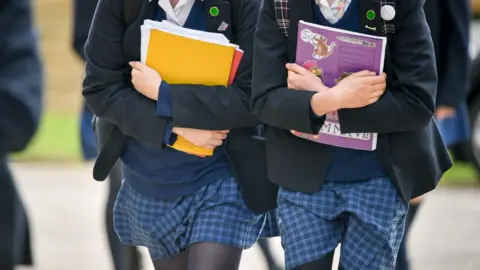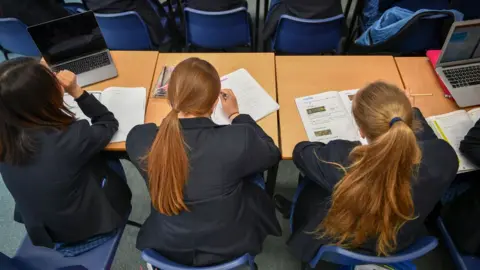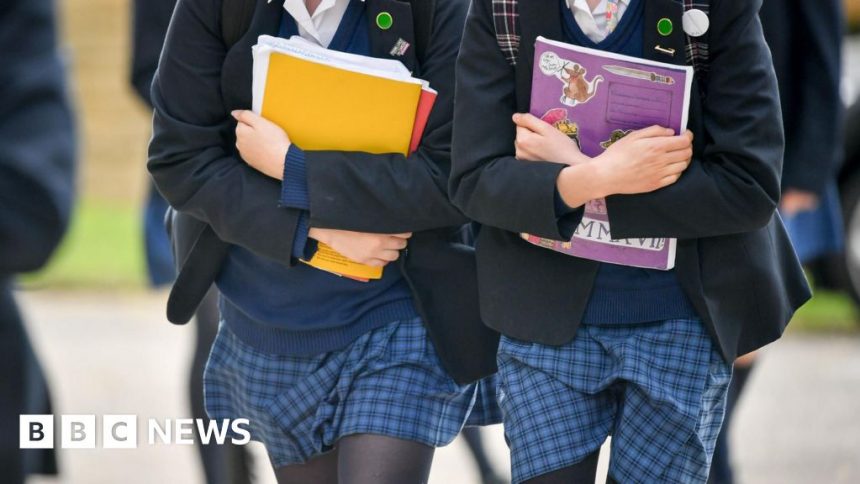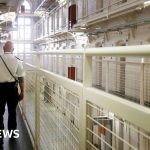Review over school sex survey to be published
 PA Media
PA MediaScotland’s chief statistician has been told to publish the results of a review into a controversial school sex survey which was first requested almost three years ago.
The Scottish government’s Health and Wellbeing census hit the headlines in 2021 after asking pupils as young as 14 about their sexual experiences.
The boss of the UK’s Office of Statistics Regulation (OSR) wrote to the Scottish government in 2022 warning that they had “underestimated the significance” the survey would have for parents and the wider public.
He ordered them to review how the survey questions were designed and the way it was tested but the findings have never been published.
In a strongly-worded letter seen by BBC Scotland News, the director of the OSR, Ed Humpherson, has now demanded that the government publish the review within 30 days.
He said it was key to providing users with important methodological information that would support transparency and trust in the Scottish government.
In response, the Scottish government said it would publish the review within the 30-day deadline.
It also said the chief statistician for Scotland – Alastair McAlpine – would reply to Mr Humpherson’s letter shortly.
In the letter, the UK stats watchdog boss told Mr McAlpine that the Code of Practice for Statistics set out a requirement for his role to show “independent decision-making and leadership”.
The code says that the chief statistician should have “sole authority” for deciding on methods, standards and procedures of official statistics.
Mr Humpherson asked Mr McAlpine to provide “assurance on the processes and governance within the Scottish government that allow you to carry out this role effectively”.
 PA Media
PA MediaThe Health and Wellbeing census was organised and promoted by the Scottish government but half of Scotland’s 32 councils pulled out following concerns about a lack of informed consent and worries over the anonymity of pupils.
In the end, about 130,000 pupils answered the questions online in classrooms and were told on the survey form itself that the information would not be shared.
The questions that were asked varied for different age groups but those in S4 (ages 14 and 15) were asked about their sexual relationships and contraception.
One question asks: “People have varying degrees of sexual experience. How much, if any, sexual experience have you had?”
The multiple choice answers include “oral sex” and “vaginal or anal sex”.
At the time of the survey, campaigners warned that it must protect children’s right to privacy and give informed consent.
However, consent was done on an “opt-out” basis, meaning parents or pupils had to specifically refuse to take part.
Parents said they were not told the nature of the questions in advance and were not asked to agree that their children’s private information could be shared.
‘Full transparency’
Gavin Yates, the executive director of parents’ organisation Connect, said it was really disappointing that years later there still was not “full transparency” about the survey.
“Finding out what young people think is really important but data must be collected in an ethical, open way with proper opt-in consent,” he said.
“It’s clear that it’s time for the full review to be published so we can establish what happened and how protocols will need be changed to put things right.
“If the parents that initially raised this issue were listened to at the time then these matters could have been properly dealt with years ago.”
The intervention by the OSR comes two weeks after BBC Scotland News revealed that data from the survey was being advertised to external researchers, despite promises to children ahead of the survey that this would not happen.
The Scottish government later withdrew access to the data.







